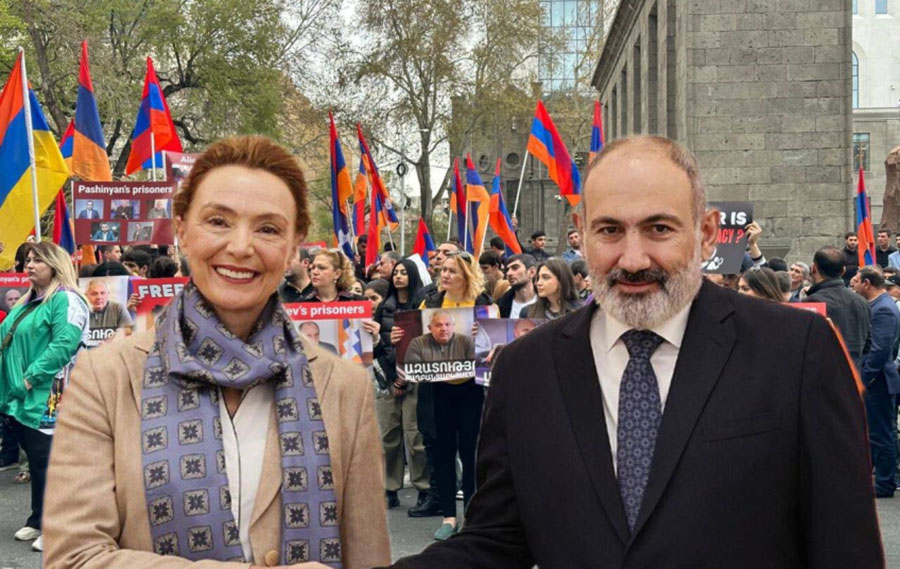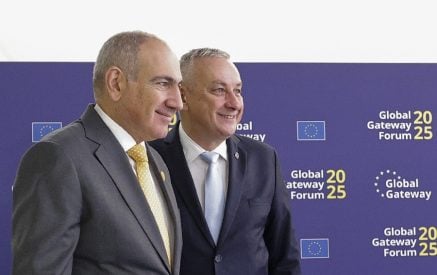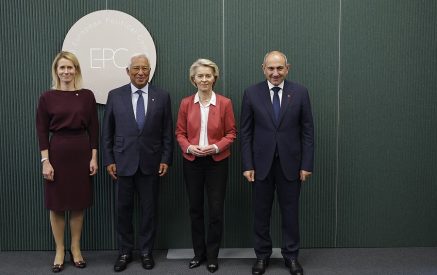On April 8, in light of the visit of Marija Pejcinovic Buric, the Secretary-General of the Council of Europe, to Yerevan, the titular opposition organized protests in defense of the rights of political prisoners. The fact that dozens of individuals are imprisoned for their political views in the Republic of Armenia is undeniable. Furthermore, the number of such individuals is growing exponentially. It is evident that as the current government’s rating declines, the number of political prisoners will increase.
The logic is clear: the regime can only maintain its power through repression; there is no other way. And the incumbent rulers will have to answer for the devastating damage they caused the country during their tenure after the regime change. Until then, they are simply condemned to preserve their authority in any way possible, because the alternative can come at a very high price.
This was a brief description of the situation. Now, let’s delve into the expediency of organizing similar actions: how effective are they, and in general, how compatible are they with the term “sovereignty”? To do so, we must turn to history. International law took shape at the beginning of the 20th century. From the perspective of that law, sovereignty is the absolute right of the state to address all its internal problems, regardless of the will of others and any contractual obligations.
International structures were established after World War II, one of which is the Council of Europe, of which Armenia became a full member in 2001. The Council of Europe serves as an international organization fostering cooperation among its member states and European nations in various areas, including setting legal standards, upholding human and civil rights, promoting democratic development, ensuring the rule of law, and facilitating cultural interaction.
Read also
As we can see, the primary mission of the Council of Europe is to uphold legal standards. However, since 2018, the organization has failed to take any decisive action. This became evident when, in response to the Armenian prime minister’s call, the courts were blocked, judges were humiliated, they were arrested for their decisions, court cases were initiated against them, they were dismissed from their positions, and the composition of the Constitutional Court was altered in an illegal and unconstitutional manner. Additionally, individuals deemed unfavorable to the authorities were forced “to lie on the asphalt,” among other egregious actions.
To turn a blind eye to these kinds of injustices is to openly show one’s political bias. And so it goes. Like any international organization or state, Europe promotes its interests. Life shows vivid evidence of this every day. We witnessed the most recent example prior to the tripartite meeting in Brussels on April 5, when the US Secretary of State Antony Blinken and the President of the European Commission Ursula von der Leyen had phone conversations with Aliyev, assuring that the meeting was not against Azerbaijan.
They failed to call upon “the Sultan” of Baku when, last year, on September 18-20, he subjected the three-thousand-year-old native Armenian inhabitants of Artsakh to ethnic cleansing and depopulation. Prior to that, he made the 120,000 Armenian population of the unrecognized state starve during a 9-month siege. What is unclear here? Europe receives hydrocarbons from its favorite dictator, Ilham Aliyev; it has an interest, so he is allowed to commit everything, even genocide.
Demonstrations are held in defense of political prisoners in Yerevan and in Baku, and letters are written to the Secretary-General of the Council of Europe. Ultimately, they aim to stir the conscience of Europe. However, it’s a futile endeavor, ladies and gentlemen.
ACNIS (The Armenian Center for National and International Studies)























































